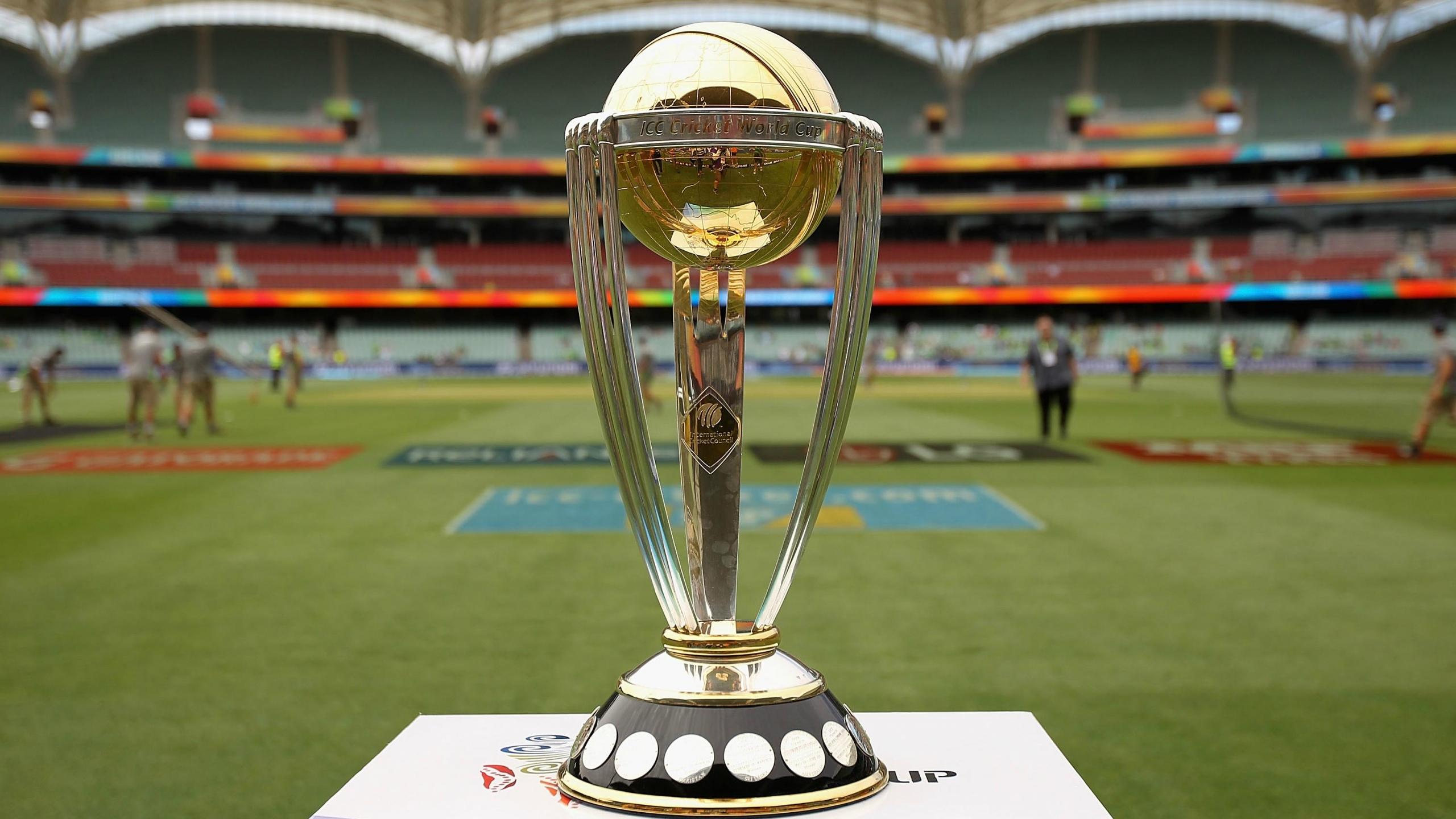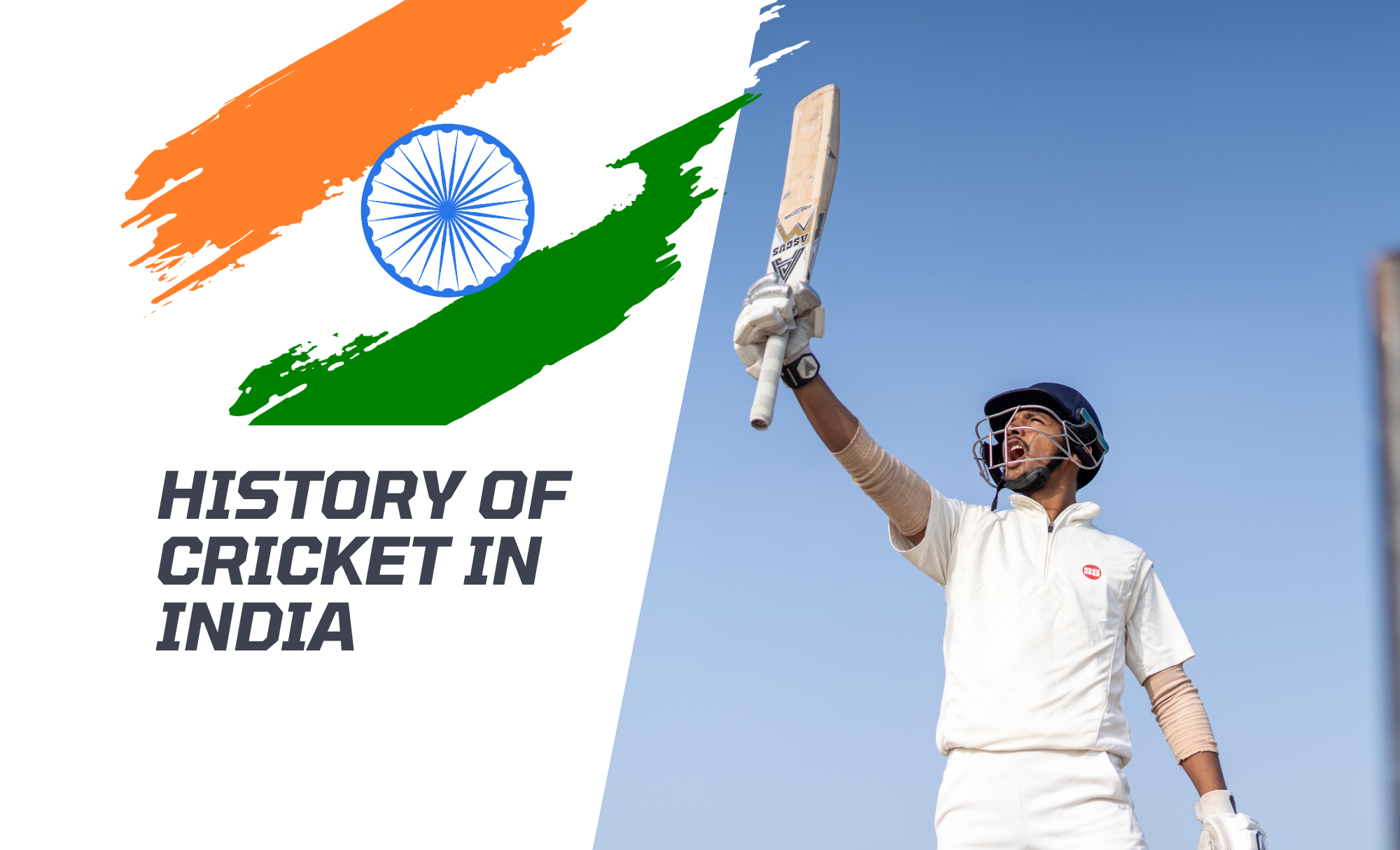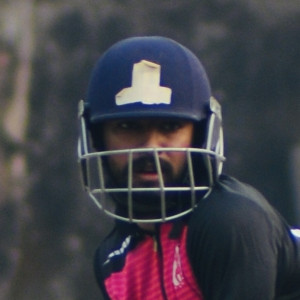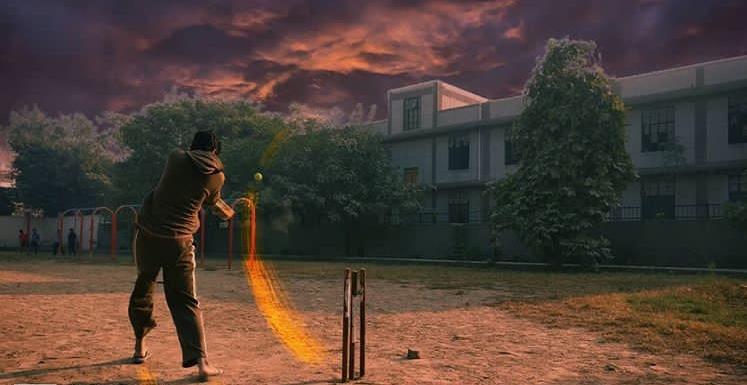Virat Kohli, Rohit Sharma, KL Rahul - do these names sound like you are watching an electrifying cricket match in the Nov edition of the T20 World Cup?
The Indian cricket team played its first Test match in 1932 and has consistently ranked among the top four test teams in the ICC rankings from 2005 to 2008. The team achieved victory in the ODI Cricket World Cup in 1983 and 2011. Additionally, India secured the Twenty20 World Cup in 2007 and the ICC Champions Trophy in 2002 and 2013.
In the first fifty years of international cricket, India was considered one of the weaker teams, winning only 35 out of the first 196 Test matches played. However, the team started to gain strength in the 1970s with the emergence of players like Gavaskar, Viswanath, Kapil Dev, and the Indian spin quartet.
European merchant sailors brought cricket to the Indian subcontinent in the 18th century, leading to the establishment of the first cricket club in 1792.
The roots of Indian cricket, specifically cricket played by Indians, can be traced back to Mumbai, where the Parsis were the first Indian community to embrace the sport.
Dr. William Gilbert Grace is widely recognized as the father of cricket due to his numerous achievements and his influence on the way the sport is played. During a period when cricket was not widely popular, Grace made significant contributions that transformed the sport.

Historic Timeline For The Indian National Cricket Team
1911
1st International Match
The All India Cricket Team plays its first international match against a team from England.
1932
India's 1st Test Cricket Team Captain
The first Indian Cricket team captain was C.K. Nayudu in 1932. India's first-ever cricket match was played on June 25, 1932
1932
1st Test Match
India plays its first Test match against England at Lord's in London.
1952
1st Test Match Victory
India wins its first Test match against England at Madras (now Chennai).
1971
1st Test Series Win vs England
India wins its first Test series against England in England. India won their first Test series against England in England. The team, led by Ajit Wadekar, won the three-match series 1-0.
1973
WCAI is founded/registered
National governance begins; women’s cricket becomes organised through inter-state nationals and formal administration
1976
First Official Women's Test Match
India women play their first official Test match vs West Indies (Bengaluru), marking the start of India’s women’s international Test era.
1976
India Women's First Win
India record their first Test win (Patna, 4th Test vs West Indies)
1978
India hosts the 1978 Women’s Cricket World Cup
The tournament is played as Women’s ODIs; India participates as hosts
1983
India's 1st World Cup
India wins its first-ever Cricket World Cup, defeating West Indies in the final at Lord's, England.
1985
Sunil Gavaskar Milestone
Sunil Gavaskar becomes the first player to score 10,000 Test runs.
1990
Kapil Dev Record
Kapil Dev becomes the highest wicket-taker in Test cricket, surpassing Richard Hadlee's record of 431 wickets.
2000
Sachin Ramesh Tendulkar's Record
Sachin Tendulkar becomes the first player to score 10,000 runs in One Day Internationals.
2001
India beats Australia
India wins a historic Test match against Australia in Kolkata after being asked to follow on, with VVS Laxman and Rahul Dravid putting on a record-breaking partnership of 376 runs.
2007
ICC World Twenty20 Cup
India wins the inaugural ICC World Twenty20 tournament in South Africa.
2008
Border -Gavaskar Trophy
India wins the Border-Gavaskar Trophy in Australia, becoming the first team to win a Test series there in over 20 years.
2011
India's Second World Cup
India wins its second Cricket World Cup, defeating Sri Lanka in the final in Mumbai. MS Dhoni wins it with a historic 6!
2014
ICC Champions Trophy 2014
India wins the ICC Champions Trophy, defeating England in the final in Birmingham.
2017
Best Test Team in the World
India becomes the number one Test team in the world.
2024
India Wins T20 World Cup 2024
India won the men's T20 Cricket World Cup
2025
India Wins Their First ODI Women's World Cup
India Women won the 2025 ODI World Cup, beating South Africa in the final
Professional cricket is not child's play. Teams like India, South Africa, and Australia have not become No.1 just like that. The cricketer that you look up to - Rohit Sharma. KL Rahul, Virat Kohli, Sachin Tendulkar - have not achieved greatness through a fluke. So, before you type coaches near me in the search engine, think twice about whether you want to become a professional cricketer or not.
The bat is not a toy. It's a weapon. It gives me everything in life, which helps me to do everything on the field.
Virat Kohli
If you read the history of cricket, you will realize how much players in the early days have had to struggle to even buy their gears and kit. Now it all comes easy, thanks to big sponsors. But behind it all is still a lot of hard work sleepless nights and the hunger to win every match for the country. These are elements that define greatness in cricketers, not the number of endorsements they are associated with.
Looking for cricket coaching near me? Find an expert coach on Superprof!
History Of Indian Cricket
First Recorded Match
The first cricket match played in India was recorded in 1721. It involved sailors playing in Western India.
The Indian National Cricket Team has a rich history that dates back to the early 1900s. Cricket was introduced to India during the British colonial period, and the first recorded match was played in 1721 between sailors and English traders in western India.
In 1911, the All India Cricket Team played their first international match against a team from England. The team was captained by Maharaja of Patiala, and India lost by 158 runs. However, this marked the beginning of India's cricketing journey.
During British rule in India, a few Indians, such as Ranjitsinhji and KS Duleepsinhji, played for the English cricket team.
Before delving into the history of Indian cricket, it is essential to recognize the influential figure behind its development. Maharaja Of Patiala Sir Bhupinder Singh, also known as Bhuppa, was renowned for his lavish lifestyle and his prowess as a cricketer. His team, Patiala XI, was one of the top cricket teams in India.
As a great supporter of sports, he sponsored numerous cricket tours and tournaments in India using his own funds. In 1911, he captained the Indian cricket team during their visit to England and also participated in 27 first-class cricket matches between 1915 and 1937. Maharaja of Patiala played a pivotal role in shaping the illustrious history of Indian cricket.
India's First Match in Cricket History
India's first-ever cricket Test match was played on June 25, 1932. It was a Test match against England at Lord's Cricket Ground in London. This marked India's debut in Test cricket
Everything great for India's cricket team started on the 25th of June 1932. Here are some of the most remarkable facts about India's first match in cricket history along with other historical facts.
Looking for cricket coaching near me? Find a coach on Superprof!
Other Notable Indian Cricket Facts
1990: Kapil Dev becomes the highest wicket-taker in Test cricket, surpassing Richard Hadlee's record of 431 wickets.
and 253 wickets in ODI Cricket
1996: India reaches the semi-finals of the Cricket World Cup but loses to Sri Lanka.
2000: Sachin Tendulkar becomes the first player to score 10,000 runs in One Day Internationals.
and 15,921 Runs in Test Cricket

The Greatest Captains In Indian Cricket History

It is a dream of almost every cricketer to lead their teams from the front as captains. And, while the role of Indian cricket captains is of great significance in determining the outcomes of matches, the role of the Indian cricket team coach can't be undermined either.
Indian cricket history has seen many great captains who have led the national team to success in various formats of the game. Here are some of the greatest captains in Indian cricket history.
Discover cricket coaching near me and start becoming a pro, too.
Kapil Dev
Kapil Dev is one of India's most iconic cricket captains. He led India to its first-ever Cricket World Cup victory in 1983, where India defeated the West Indies in the final at Lord's, England. He was known for his fearless leadership, innovative strategies, and ability to inspire his team.
- In Test matches, India won 4 out of the 34 matches played under Kapil Dev's captaincy.
- In One Day International (ODI) matches, India won 73 out of the 74 matches played under his captaincy.
Kapil Dev, a legendary Indian cricketer, captained the Indian cricket team from 1982 to 1987
Sourav Ganguly
Sourav Ganguly is credited with transforming Indian cricket into a dominant force in world cricket during his captaincy tenure from 2000 to 2005. He was known for his aggressive captaincy style, strong leadership, and ability to build a winning team.
- In Test matches, India won 21 out of the 49 matches they played under Sourav Ganguly's captaincy.
- In ODI matches, India won 76 out of the 146 matches they played under his captaincy. (52.05% win percentage)
Under his leadership, India reached the final of the 2003 Cricket World Cup.
MS Dhoni
MS Dhoni is one of India's most successful cricket captains, having won multiple ICC trophies, including the 2007 ICC World Twenty20, the 2010 and 2016 Asia Cups, the 2011 Cricket World Cup, and the 2013 ICC Champions Trophy. He is known for his calm and composed captaincy style, astute decision-making, and ability to handle pressure situations.
- In Test matches, India won 27 out of the 60 matches played under MS Dhoni's captaincy.
- In ODI matches, India won 110 out of the 199 matches played under his captaincy. (55.00% win percentage)
Dhoni has a winning percentage of 54.81% in Test matches, 60.38% in One Day Internationals (ODIs), and 56.94% in Twenty20 Internationals
Rahul Dravid
Rahul Dravid is one of India's most respected cricket captains. He led India to a historic Test series victory against England in 2007 and also led the team to the final of the 2003 ICC Cricket World Cup. He was known for his tactical acumen, solid batting, and ability to get the best out of his team.
Learn how to play with cricket coaching near me on Superprof.
Virat Kohli
Virat Kohli is the current captain of the Indian cricket team and one of the most successful captains in Indian cricket history. Under his leadership, India has won several Test series and limited-overs tournaments, including the 2018 Asia Cup and the 2021 Border-Gavaskar Trophy in Australia. He is known for his aggressive captaincy style, strong leadership, and ability to lead from the front.
The role of a good and efficient cricket coach, who works silently behind the scenes and backs the captain, is pivotal in winning any match for the team - T20, ODI, or test. Some of the greatest Indian cricket team moments have come through because of the joint effort of the coach and the captain, apart from the performance of players on the field. As long as the team wins, it doesn't matter who drove the ship to anchor - coach or captain, or an individual player.
India's most successful test captain 40 wins, 17 losses, and 11 draws in 68 matches.
The contribution of a coach often goes unnoticed and unacknowledged. But that becomes immaterial as long as the team does well. Coaches are more like mentors and their role goes beyond just training the players and building strategies to win.
India appointed its first official coach in 1992. To date, the men's cricket team has had 10 formally appointed and permanent coaches.
What Defines Success in Indian Cricketers?

Although it was the Britishers and England who introduced it to the world, the Indian cricketers are almost treated as Gods. For millions of Indians, cricket is a matter of great pride and faith. No wonder the national cricket team captains are often burdened with the dreams and expectations of more than a billion people who expect every match outcome to be a win - be it in the World Cup or a test series.
The captain of the Indian national cricket team is often referred to as the skipper and is the appointed leader of the team. Apart from playing their part with the bat or ball, they are entrusted with additional responsibilities like team selection, deciding the batting and bowling orders, deciding whether to bat or bowl first in a match, etc.
Just like any other sport, the captain of the Indian cricket team is someone who is relatively more experienced than the other players, is part of the regular Indian cricket team matches. The captain banks on their experience to decide who goes to bat when or which bowler to assign in the powerplay or the death, or whether to go for a combination of left and right-handed batters, etc.
Although the decisions are mostly collaborative, and done in conjunction with other senior players and the coach, the captain has the final say on all such matters. The captain is usually someone with strong analytical skills. They are expected to handle pressure well and should have the ability to motivate the team when the chips are down. Some of the greatest Indian cricket team moments have been inspired by the leadership of the captain.
What is the mantra for success of the Indian cricket team?
The Most Successful Indian Women Cricketers

If you are glued to your TV watching the November T20 world championships, then you need to take a break. Especially if you are a fan of the Indian national cricket team. How about shifting a little focus to the women's team who has made the country equally proud. Indian women cricketers have now made a reputation for themselves and are right there at the top of world rankings by ICC. But things weren't this easy when you look back at the history of cricket. Many women and men have fought hard to bring women's cricket to the limelight. There was a time when finding cricket classes for women was unthinkable.
Although women's cricket was not an alien concept even in the '70s, but it was far from being organized. The first Women's Cricket Association of India was formed in 1973, inspired by the entrepreneurial spirit of Mr. Mahendra Kumar Sharma, with Begum Hamida Habibullah becoming its first President.
India played its first international match against Australia on its home ground in 1975.
The first-ever women's test match was held in Pune with three different Indian national women's cricket team captains, namely Ujwala Nikam, Sudha Shah, and Shreeroopa Bose. India burst onto the world cricket scene, playing in back-to-back matches with New Zealand, England, Australia, and the West Indies.
Improve your game with cricket coaching near me.
Indian women's cricket has seen a surge in popularity in recent years, thanks to the success of some of the country's most talented and successful players. Here are some of the most successful Indian women cricketers:
Mithali Raj: Mithali Raj is one of the greatest women cricketers ever. She scored over 10,000 runs in international cricket, including 7 centuries and 53 half-centuries. She has also captained the Indian women's cricket team and led them to the final of the 2017 ICC Women's World Cup.
Jhulan Goswami: Jhulan Goswami is one of the greatest fast bowlers in women's cricket history. She has taken more than 230 wickets in international cricket and has also scored more than 1500 runs. She has also won several awards for her performances, including the ICC Women's Player of the Year award in 2007.
Smriti Mandhana: Smriti Mandhana is one of India's most talented and stylish left-handed opening batters. She has scored more than 2000 runs in international cricket, including 4 centuries and 14 half-centuries. She was also a key player for India during the 2017 ICC Women's World Cup.
Harmanpreet Kaur: Harmanpreet Kaur is an explosive middle-order batter and a reliable off-spinner. She has scored more than 2000 runs in international cricket, including 1 century and 11 half-centuries. She also made history during the 2017 ICC Women's World Cup, where she scored an unbeaten 171 in the semi-final against Australia.
Poonam Yadav: Poonam Yadav is a talented leg-spinner who has taken more than 100 wickets in international cricket. She was also a key player for India during the 2020 ICC Women's T20 World Cup, where she took 10 wickets in 5 matches and helped India reach the final.
These women cricketers have not only achieved individual success but have also contributed to the growth and success of Indian women's cricket on the global stage. They are an inspiration to many young girls who aspire to play cricket and represent their country at the highest level.
The women's team tasted its first win against the West Indies in 1976 much to the delight of the 25,000 odd spectators in Patna.
India's Tryst with the ICC Cricket World Cup

No dream is ever chased alone - Rahul Dravid
The ICC Cricket World Cup is typically used to refer to the men's world series of ODI matches. It is organized by the ICC or the International Cricket Council, which is the apex body of world cricket. Held every four years, this ODI series has no fixed number of nations who can play. Typically, all the Test playing nations can participate along with other non-Test-playing countries. Every team has to go through a series of qualification matches to be able to participate in the final tournament. It is one of the biggest sporting events across all sports, along with the Wimbledon and FIFA World Cup. It is also the flagship event of the ICC.
The men's team has won the World Cup twice - once in 1983, when it was called the Prudential Cup, led by Kapil Dev and then again in 2011, under the captaincy of MS Dhoni. The women's team is yet to win a World Cup although some of the greatest Indian cricket team moments for the women in blue have been in the recent T20 World Series.
The first-ever World Cup was held in England in the summer of 1975, preceded by the first-ever one-day match in 1971. England hosted the first three editions of the World Cup or the erstwhile Prudential Cup. But since then, other ICC members have taken turns to host the tournament at least once.
Find cricket coaching near me and improve your playing style on Superprof!
Summarise with AI:

















